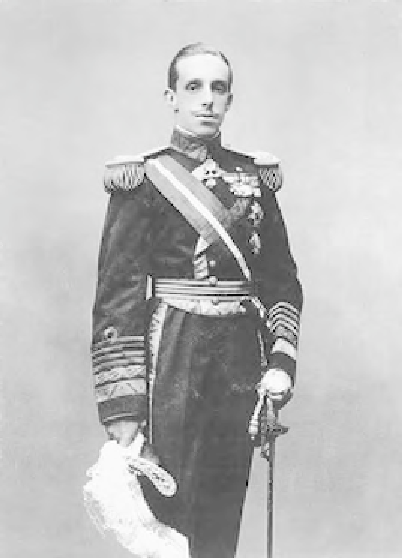Travel Reference
In-Depth Information
catastrophic defeat of Spanish colonial
forces at A
NUAL
(Morocco) in 1921. Pres-
sure from leftist parties in the parliament
threatened to embarrass the army leader-
ship and, perhaps, to disclose the king's
own incitement of a reckless offensive
against Moroccan rebels. Whatever his
motives, Alfonso encouraged General
M
IGUEL
P
RIMO
DE
R
IVERA
to rebel against
the government in 1923 and confirmed this
officer as head of a military council that
supplanted the cabinet, the legislature, and
the whole constitutional apparatus.
Between 1923 and 1930 Primo de Rivera
exercised a dictatorship in Spain achieving
various “reforms” desired by the king.
Whatever benefits were gained under this
authoritarian collaboration were, however,
outweighed by popular discontent as well
as the decline of economic stability through-
out Europe. When the general resigned and
the king could not sustain the dictatorship,
he called for elections early in 1931 in an
attempt to rally public support. Failing in
this, he left Spain, promising to return
when the situation had resolved itself. The
prompt proclamation of a republic and the
subsequent onset of the S
PANISH
C
IVIL
W
AR
made his resumption of the throne impos-
sible. Alfonso XIII was fated to spend the
rest of his life in exile.
King Alfonso XIII
(Library of Congress)
under his mother's regency during an era of
disaster overseas (the loss of the remaining
colonies) and growing disorder at home
(attacks from anarchists and republicans).
The regency ended in 1902, and Alfonso
XIII's full coming of age was marked by his
marriage to a granddaughter of Queen Vic-
toria of Britain in 1906. His attempts to play
a strong role within the scope left to the
sovereign by the constitution proved inef-
fective, though his pro-British inclinations
may have counterbalanced the military's
sympathy for Germany and thus helped
keep Spain neutral in World War I.
Alfonso XIII's most dramatic interven-
tion in Spanish politics took place after the
Algarve
A province located in Portugal's Mediterra-
nean coastal region and encompassing
nearly 2,000 square miles, Algarve is known
for its mild climate and abundant harvests,
particularly of citrus fruits. Settled by Phoe-
nicians in antiquity, Muslim conquerors
held on to the Kingdom of Algarve as their
last possession in Portugal. Afonso V cap-


Search WWH ::

Custom Search